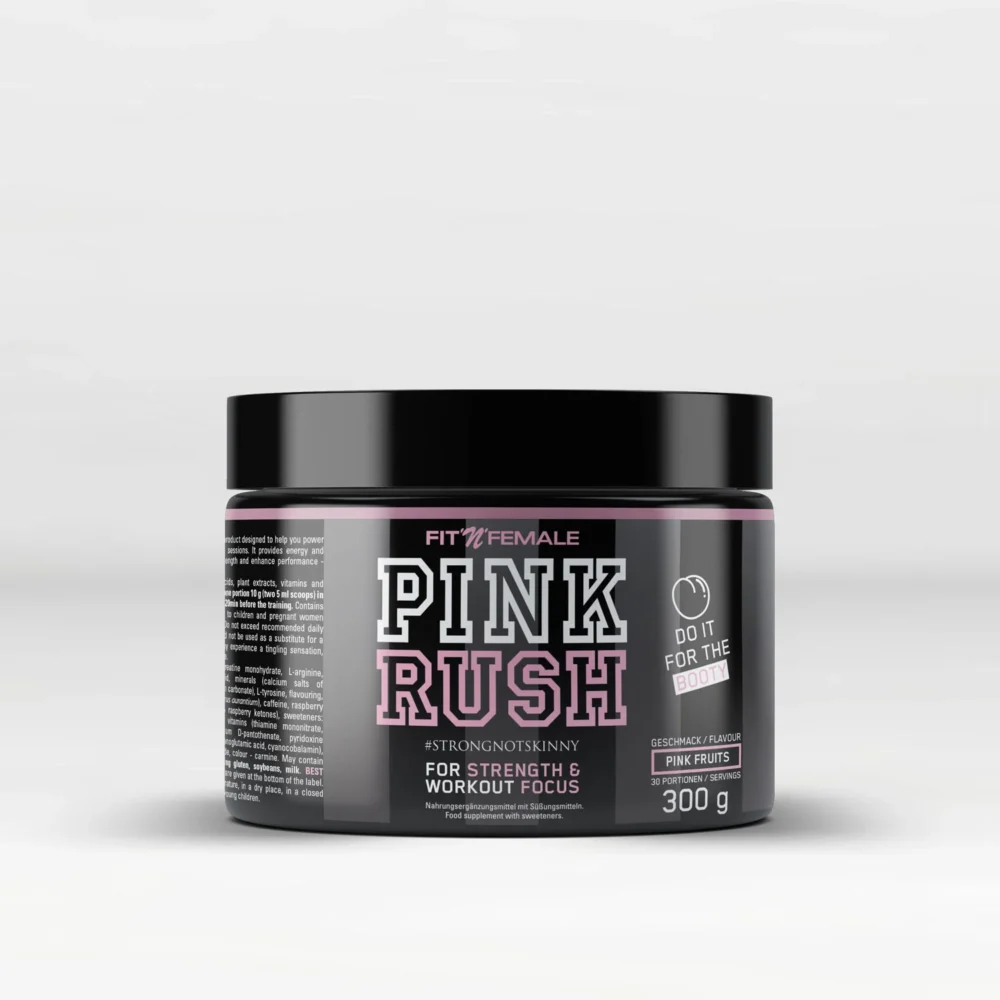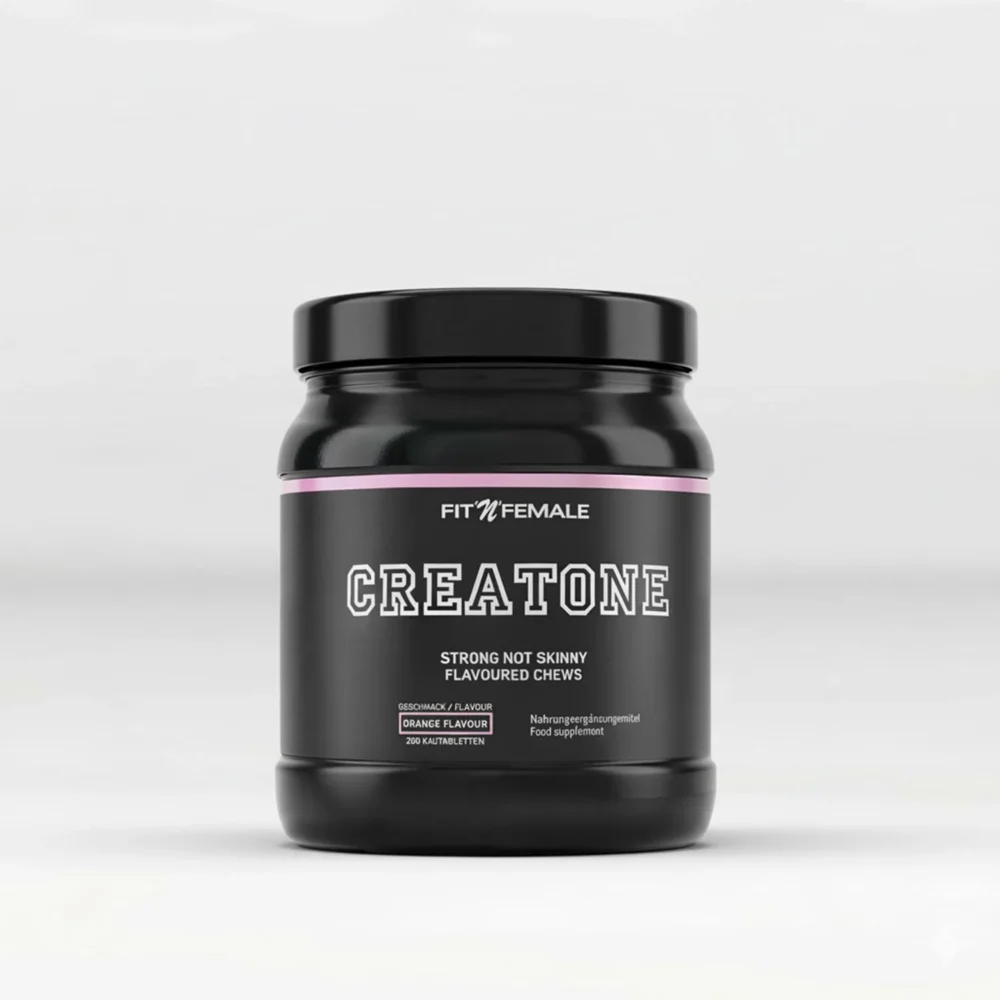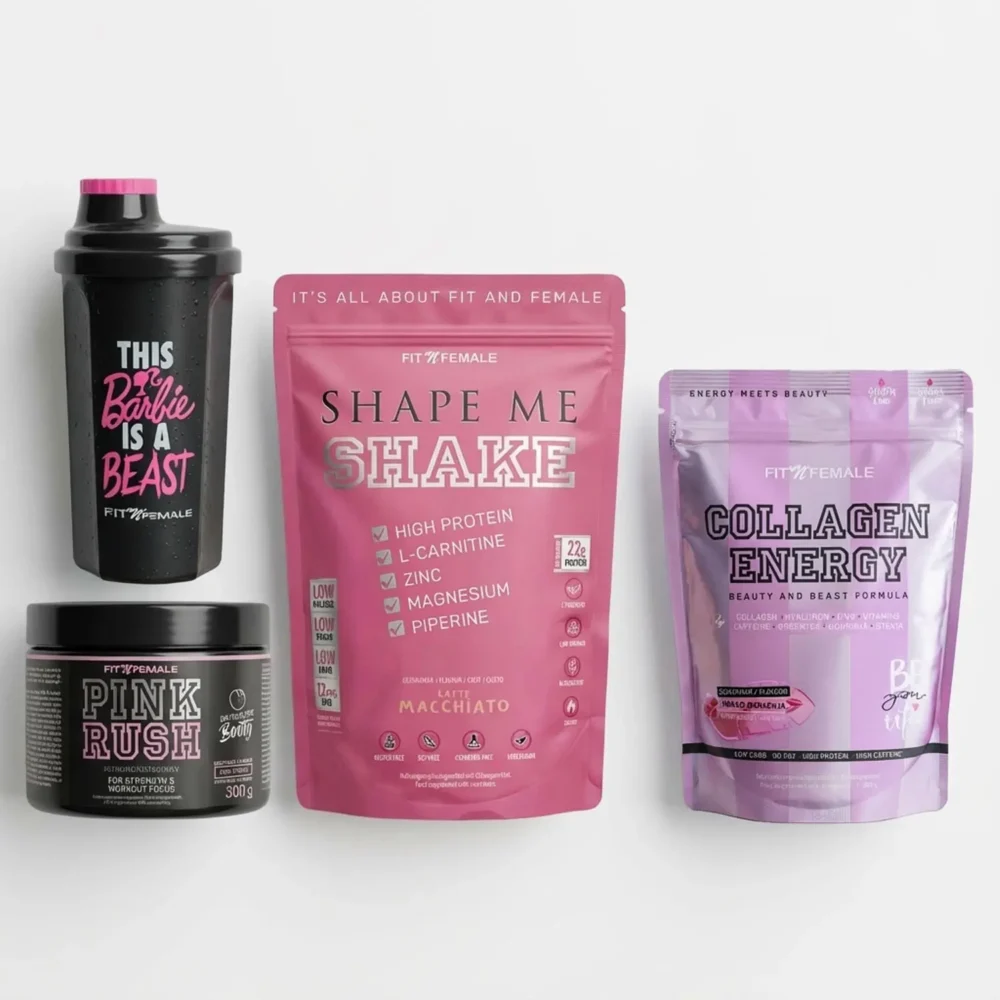Women and creatine - If you've been around a little bit of Fitness Community and you are interested in optimized sports nutrition and the corresponding nutritional supplements, you have certainly heard something about Creatine products heard. You might be wondering what this supplement is all about or if it makes sense to try it out for yourself. In this article we would like to answer the most important questions about creatine products and at the same time clear up some prejudices that are widespread, especially among women.
What is creatine actually?
Before we delve deeper into the subject matter, we should first clarify that it is Creatine (also Creatine) creatine is not a steroid, i.e. a banned substance, but a substance that has nothing whatsoever to do with hormones. The origins of creatine research go back to the early 19th century, when scientists at the time were able to identify the substance as a central component of the muscle tissue of mammals. Accordingly, the name of creatine is derived from the ancient Greek word kreas, which translated simply means meat. The substance is therefore also produced in the human body, although this process primarily takes place in the liver with the help of the amino acids arginine, glycine and methionine. Even though amino acids play a central role in the synthesis of creatine, it is not a protein as a whole. In practice, therefore, creatine is also metabolized completely differently than proteins.
How is it received?
Since your body is able to produce creatine on its own, it is not an essential substance, unlike most other micronutrients. Conversely, the supplementation is nevertheless useful in terms of strength building, since the creatine stores can be optimally exploited. Creatine-based supplements usually consist of a white and odorless powder that is produced in highly specialized laboratories. A wide variety of creatine types are sold on the market, with creatine monohydrate and creatine ethyl ester being by far the most common. However, the substance does not have to be ingested via dietary supplements, as it is also contained in various foods such as beef, liver, lamb, and fish, among others.
How does creatine metabolism work?
Creatine is basically an energy-rich phosphate that helps your body generate energy for muscular work. Basically, the energy production of your muscles is based on the energy carrier ATP, which is broken down in the course of muscle contraction, creating the substance ADP. This is where creatine comes into play, ensuring that ADP can be resynthesized back into ATP. The fuller your natural creatine stores are, the longer your muscles can work at maximum performance, which is particularly important in the context of strength training, because only then can maximum growth stimuli be set.
What are the benefits of creatine intake for women?
Even though most of the studies regarding the effects of creatine products were conducted with men, taking them for women understandably has the same advantages, because contrary to many claims to the contrary, the sexes are not so different. By taking creatine you can increase your performance, especially in the area of maximum strength by up to 20 percent. As a result, the growth stimulus acting on the muscles also increases, which leads to an optimization of the muscle build-up, or in the context of a diet ensures that a large part of the hard-earned muscle remains despite calorie deficit.
Pink Rush - our strong pre workout booster with creatine
What does it mean to be a non-responder?
Unfortunately, however, not all people enjoy the benefits that creatine intake offers, because as numerous studies have shown, creatine intake has no effect at all on some people. These so-called non-responders accordingly do not benefit from the positive influences on maximum strength as well as on anaerobic-alactacidic performance. What this phenomenon is due to in detail has not yet been fully clarified in science. However, it is assumed that people who have a large muscle cross-section and also mainly have so-called fast-twitch muscle fibers respond significantly better to creatine intake than people with a small muscle cross-section and a preponderance of so-called slow-twitch muscle fibers, which are mainly required for endurance performance.
Can I become a responder?
Admittedly, you can't really influence whether you are a responder or non-responder, since the composition of your muscles is primarily determined by your genetics. However, you can take some steps to increase the likelihood that as much of the supplemented creatine as possible actually reaches your muscle cells. The basic requirement for optimal uptake is to ensure that you are consuming enough creatine. In this respect, a daily dosage of 0.1 grams per kilogram of body weight is recommended. You can also promote transport into the muscle cells by always taking creatine preparations together with a transport matrix of short-chain carbohydrates. Apple or grape juice, for example, is predestined for this. In addition, it is important that you give the creatine time, because due to the fact that your creatine stores must first fill up, it may take seven to ten days before you notice significant differences in performance.
Will creatine products make me retain water?
Many women are afraid that creatine intake will cause them to store extra water, which will make them look bloated. At this point, however, we can largely give the all-clear, as studies show in black and white that women store significantly less water through creatine intake than men. As a rule, however, this is no more than 1 to 1.5 kilograms, which is also distributed among the muscle cells and not the connective tissue. Accordingly, there are no characteristic deposits, such as those caused by taking the contraceptive pill, but rather a storage that makes the muscle appear more voluminous. Moreover, you should know that this water retention is necessary for any additional performance development to take place. So even if you are a person who tends to go up the wall at the slightest weight gain, you should always keep in mind that there is basically no other supplement that works as effectively and reliably as creatine.
How much creatine should I take?
In the past, it was still assumed that it was absolutely necessary to carry out a so-called loading phase within the framework of creatine supplementation, which would adjust the muscles accordingly to the optimization of the creatine stores. Not least because of the unpleasant side effects that the daily intake of more than 10 grams brings with it, sports scientists today recommend an intake adapted to the body weight. In addition, it was found that the continuous intake of lower doses is at least as effective as the previous practice. The bottom line is that a daily intake of 0.08 to 0.1 grams per kilogram of body weight is recommended.
Which type of creatine is the most useful?
As already mentioned at the beginning of this article, creatine monohydrate is the most widely used form of administration and accordingly also the best supported with studies. Nevertheless, in recent years, scientists have repeatedly tested new creatine products that have been provided with different chemical compounds, for example, to improve the absorption capacity and completely eliminate isolated side effects such as bloating, nausea and diarrhea. Without a doubt, products such as creatine ethyl esters can be absorbed somewhat better, but the small advantage is disproportionate to the price premium that must be paid. Accordingly, it is recommended to rely on a conventional monohydrate.
CREATONE is innovative creatine product in the form of chewable tablets with orange flavor! So no mixing or swallowing oversized capsules and fits naturally in any training bag! 3 chewable tablets contain 3 grams of creatine monohydrate, which corresponds to a daily portion for women with the goal of muscle building.
Which products can be optimally supplemented with creatine?
Here we clearly recommend EAA's, which for example in the product TRAIN is present. A sufficient supply of protein is the indispensable basis for muscle building. And what are proteins made of? That's right, amino acids, which act as building blocks for proteins. But did you know that some amino acids are significantly more important for your body than others? The so-called essential amino acids (EAA) play a special role among the 20 amino acids.
The well-tried Whey Protein still has its raison d'être. However, we recommend the purest form of Whey Protein, namely Whey Isolate. Preferred intake time is immediately after training or in the morning directly after getting up.
Can I take creatine products during pregnancy?
This question is understandably often asked by women. However, you don't need to worry here, because creatine has absolutely no negative influences, so you can also use it without hesitation during pregnancy. A new study from 2015 also suggests that an additional creatine intake can positively influence the neuronal development of an unborn child. This finding is at least not far-fetched, since creatine intake also promotes cognitive performance in adults.
Lean muscle building made simple!
With our Fit & Strong Bundle (Package) you have everything, including creatine of course, what you need for a trained body. In addition to the products you also get a free income plan and shaker.







